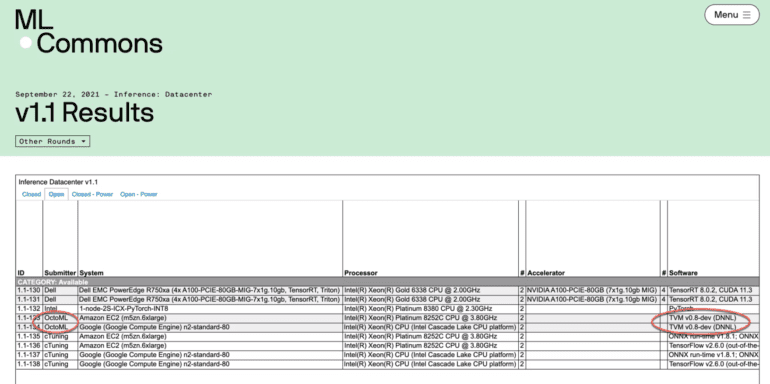TL;DR:
- MLCommons releases benchmark results evaluating AI hardware performance.
- Tests focused on the inference phase of AI data processing.
- Nvidia emerges as a top performer, followed by Intel.
- Nvidia aims to capture the inference market.
- Intel’s Gaudi2 chips offer competitive price performance.
- Nvidia plans software upgrade to double chip performance.
- Google showcases custom chip at cloud computing conference.
- Benchmark tests inform hardware choices for AI projects.
Main AI News:
MLCommons, an esteemed artificial intelligence benchmark consortium, has unveiled the outcomes of its latest evaluations gauging the velocity of cutting-edge hardware’s capacity to execute AI models. The assessments were carried out on an expansive language model featuring a staggering 6 billion parameters, specially designed to summarize comprehensive CNN news articles. The primary focus of these evaluations was to emulate the “inference” phase of AI data processing, a pivotal component powering the functionality of generative AI tools.
In these rigorous benchmark examinations, the supremacy of AI hardware was put to the test, with Nvidia Corp’s silicon securing the top position, closely pursued by Intel Corp’s semiconductor offerings. While Nvidia has traditionally dominated the realm of AI model training, the company is now setting its sights on the lucrative inference market. Their stellar submission for the inference benchmark harnessed the prowess of eight flagship H100 chips. Dave Salvator, Nvidia’s Director of Accelerated Computing Marketing, proudly asserted that the company has consistently delivered peerless performance across all workloads.
Intel, on the other hand, achieved commendable results in these benchmark trials, courtesy of their Gaudi2 chips, a product of the Habana unit acquired by Intel in 2019. Although Intel’s system exhibited a modest 10% performance lag compared to Nvidia’s offering, Eitan Medina, Habana’s Chief Operating Officer, expressed a sense of achievement. He underscored the price-performance advantage of Gaudi2, positioning it as a cost-effective alternative. However, Intel remained tight-lipped about the precise pricing details of their system.
Looking ahead, Nvidia has announced ambitious plans to introduce a forthcoming software upgrade, anticipated to bestow its chips with a remarkable twofold performance boost in the MLPerf benchmark. In a parallel development, Alphabet’s Google division showcased the formidable capabilities of its latest iteration of a custom-designed chip during a high-profile unveiling at a cloud computing conference held in August.
Conclusion:
Nvidia’s dominance in AI hardware continues with a strong showing in MLCommons’ benchmark tests, positioning them to capture the burgeoning AI inference market. Intel, while slightly slower, emphasizes cost-effectiveness with its Gaudi2 chips. As Nvidia prepares for a significant performance boost, the AI hardware landscape remains highly competitive, providing diverse options for companies and developers seeking optimal solutions for AI projects.

